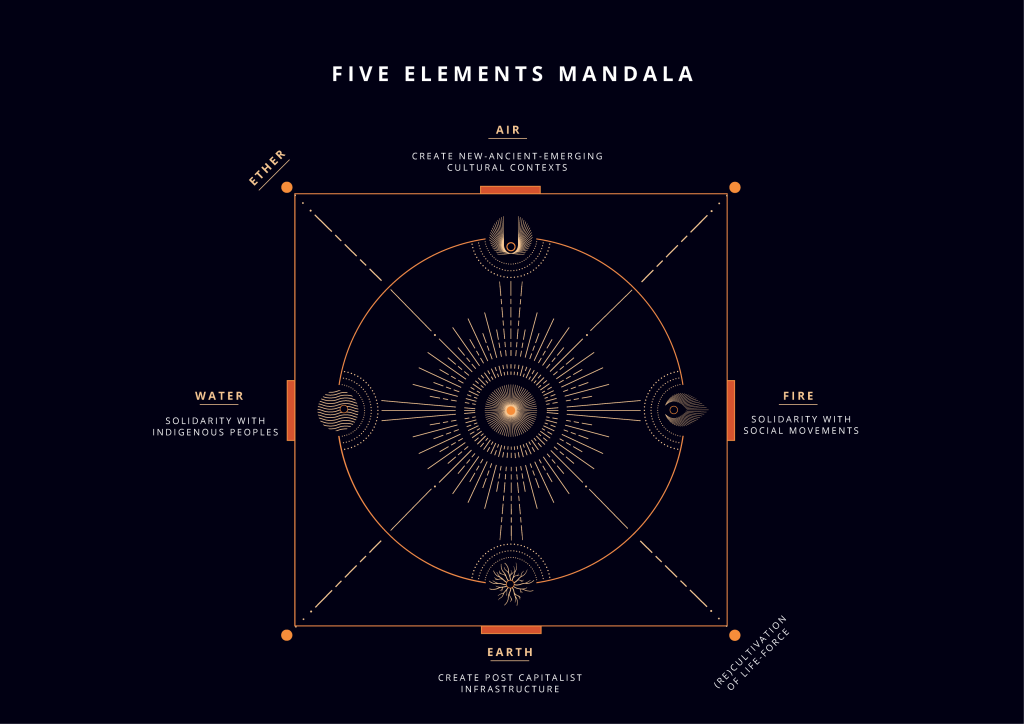With Lynn Murphy
In this video, Lynn guides us through the Five Element Mandala – a framework to heal wealth and usher in post capitalist realities.
Introduction to the Five Elements Mandala

The Mandala is presented as a model for understanding potential pathways for philanthropy to move beyond the neoliberal paradigm, emphasizing relationships and interconnectedness over hyper-rational, materialistic views.
Capitalism as Both Poison and Medicine
Explores the idea of transforming neoliberalism from a harmful system into one that can serve as medicine by leveraging capital for restoration, transformation and the (re)cultivation of life-force.
Philanthropy as a Biome
Viewing philanthropy through the lens of a biome highlights the importance of place, and the interconnectedness of water, soil, habitat, and climate, suggesting a need for philanthropy to work within these natural systems and in deep relationality.
Dam Removal in Philanthropy
This metaphor suggests releasing capital from endowments (compared to water behind a dam) to flow towards life-honoring projects, emphasizing a shift from hoarding resources to a more distributed, communal approach.
Three Key Ideas: Restoration, Transformation, and (Re)cultivation of Life Force
These ideas frame the discussion on how to approach the shift towards more life-affirming and post capitalist futures, focusing on restoring right relationships, transforming for state change, and recultivating life force.
Solidarity with Indigenous Peoples and Social Movements
The Mandala emphasizes solidarity with Indigenous peoples, recognizing their stewardship of biodiversity and survival through colonialism, and with social movements fighting the impacts of late-stage capitalism.
Creation of Post Capitalist Infrastructure
Discusses the necessity for creating localized economies, governance, and infrastructure to support transitions to post capitalist ways of living, emphasizing land-based projects and bioregional approaches.
(Re)cultivation of Life Force and Trauma Healing
Highlights the importance of working internally and externally in accordance with principles of life, including addressing trauma and fostering conditions for collective healing and liberation.
Philanthropy as a Transition Pathway
Concludes by suggesting that philanthropy itself could be a transition pathway towards a future where the concept of philanthropy is transcended, replaced by a universal love for humanity and the more-than-human world.